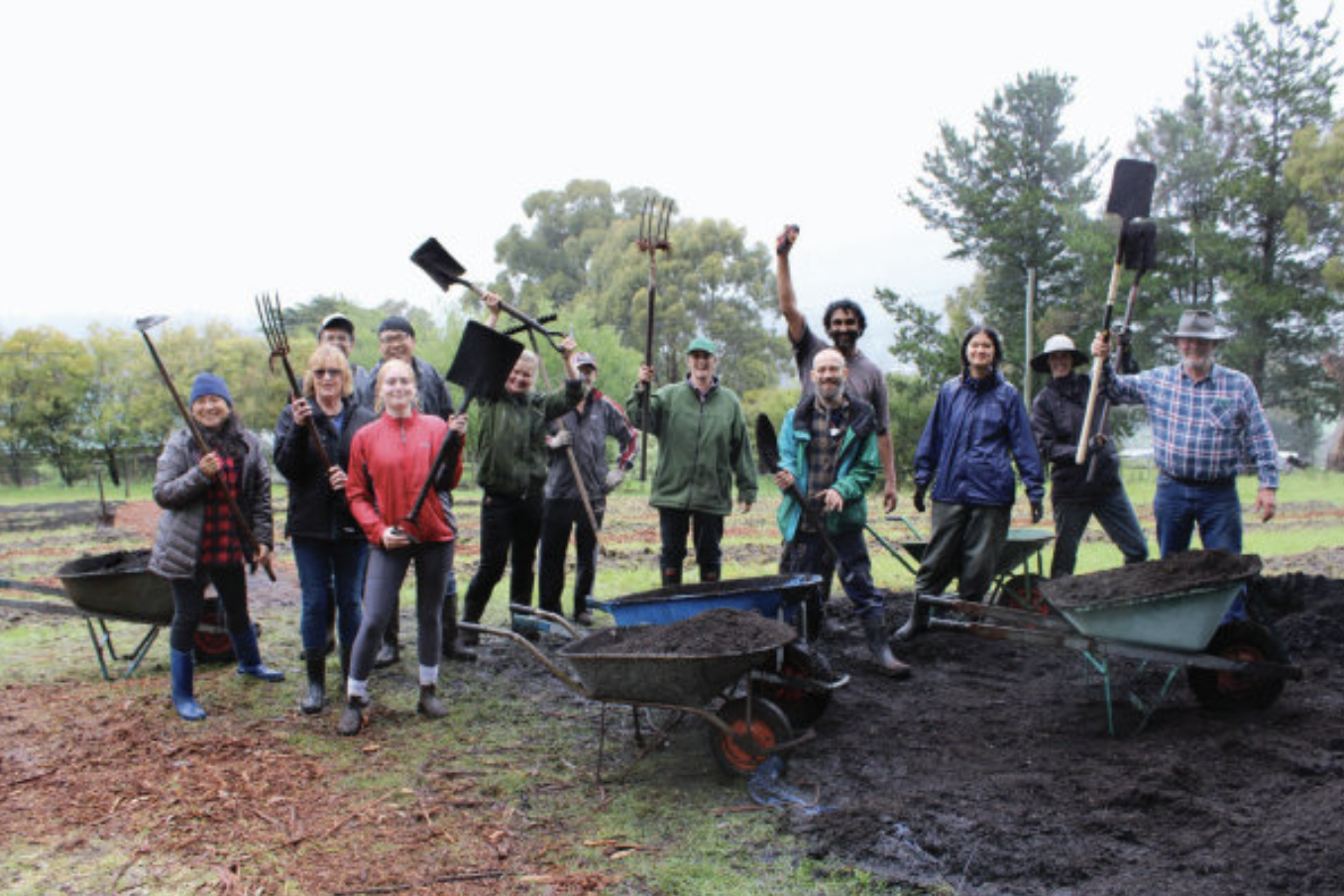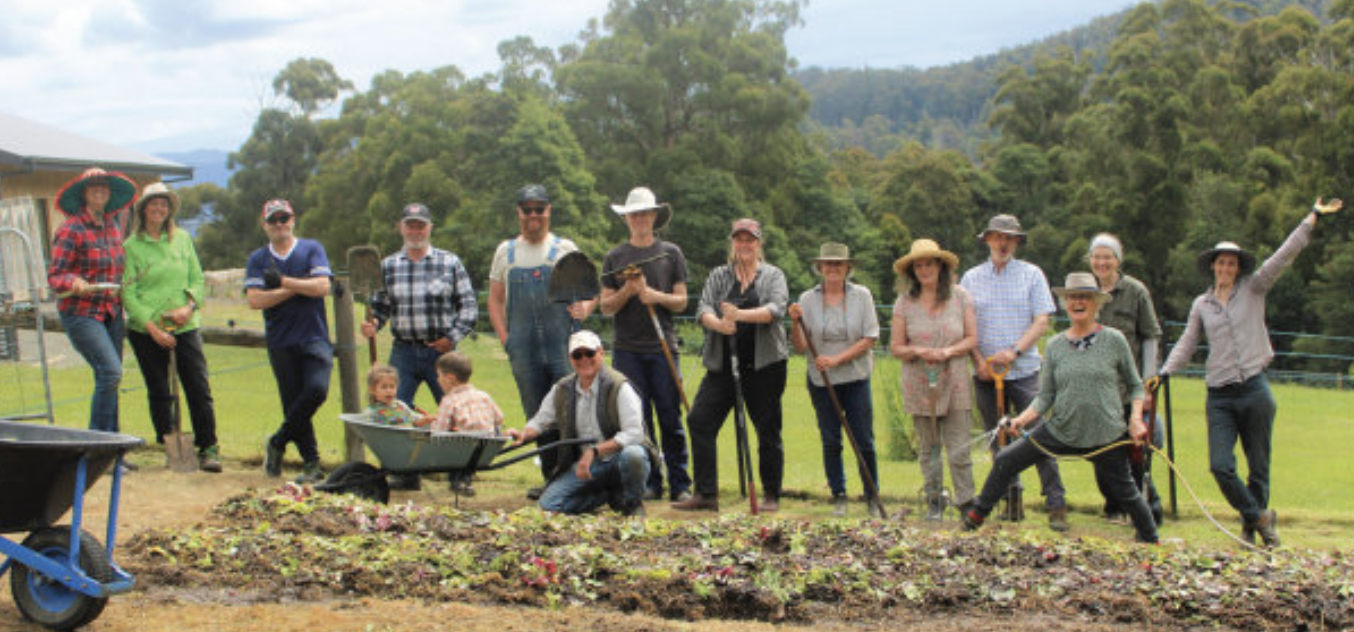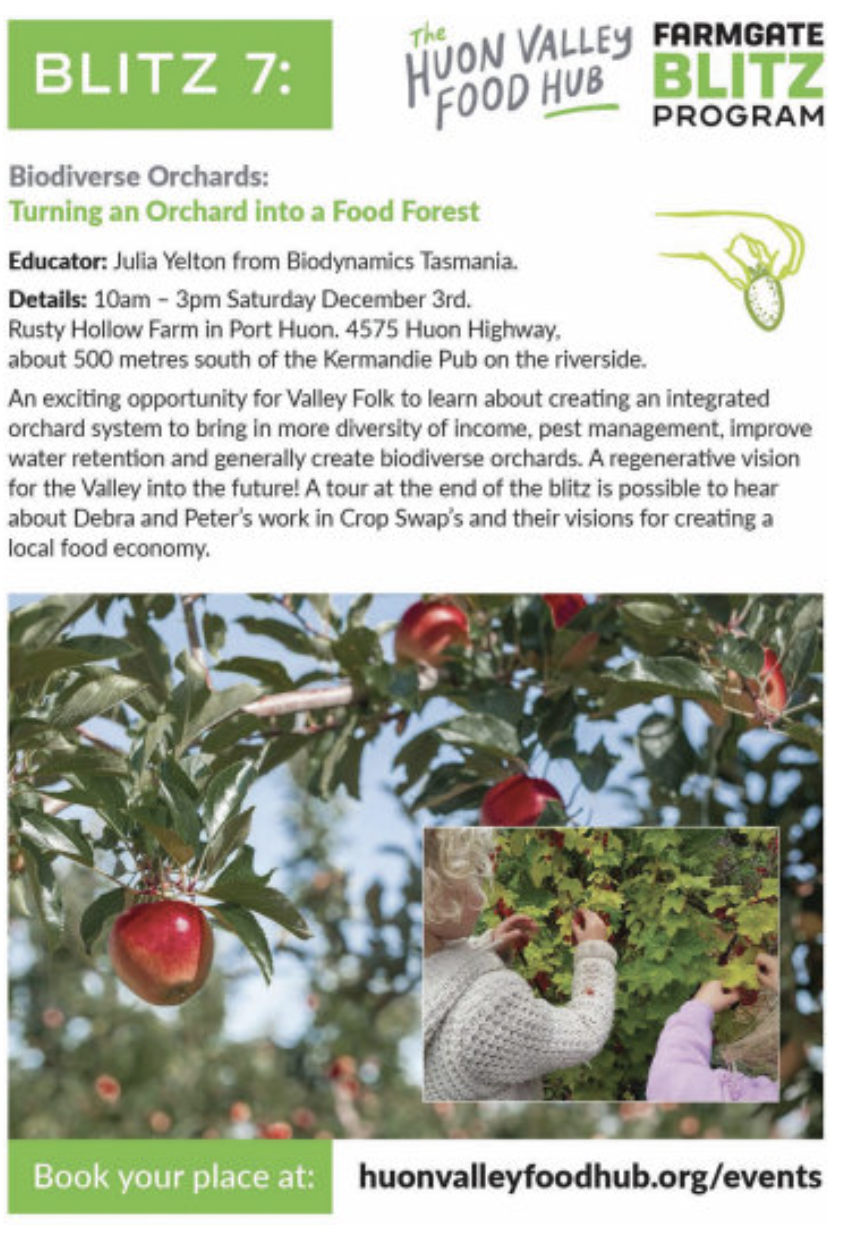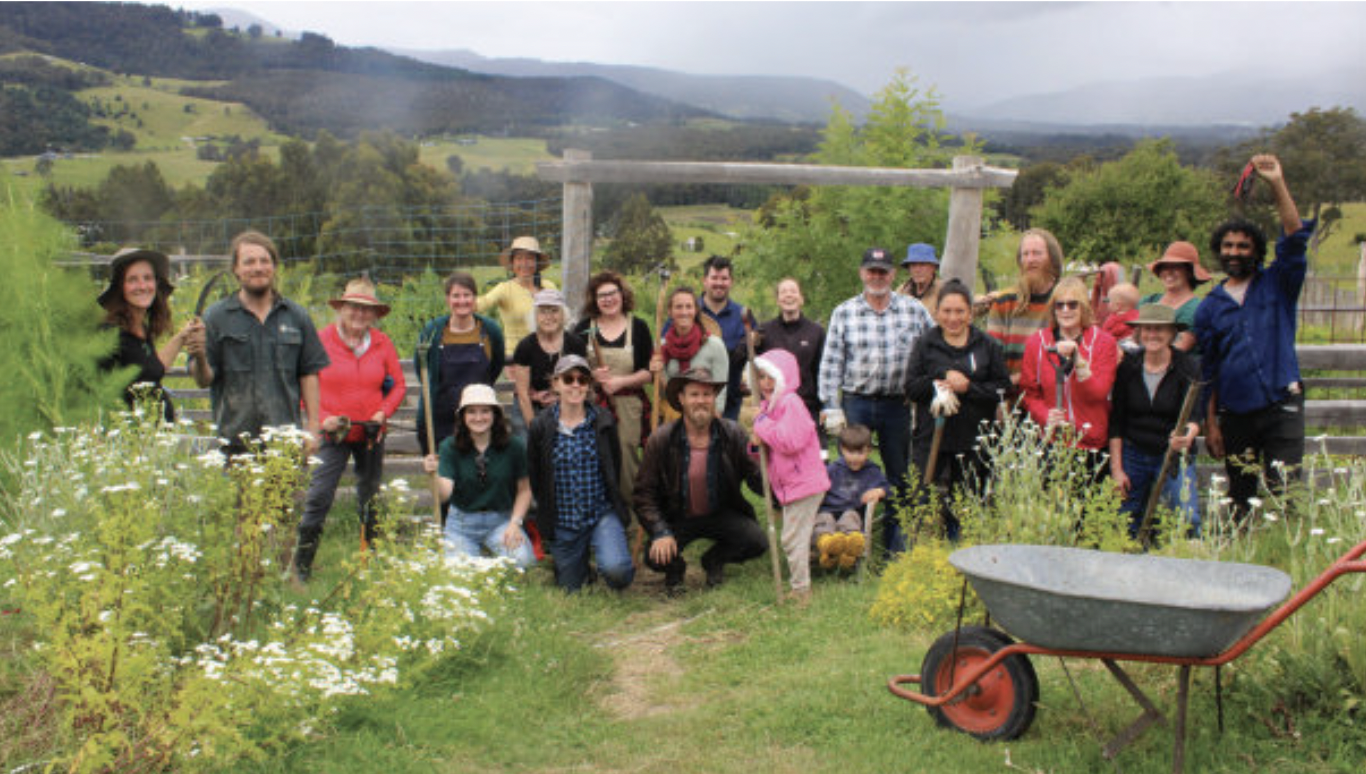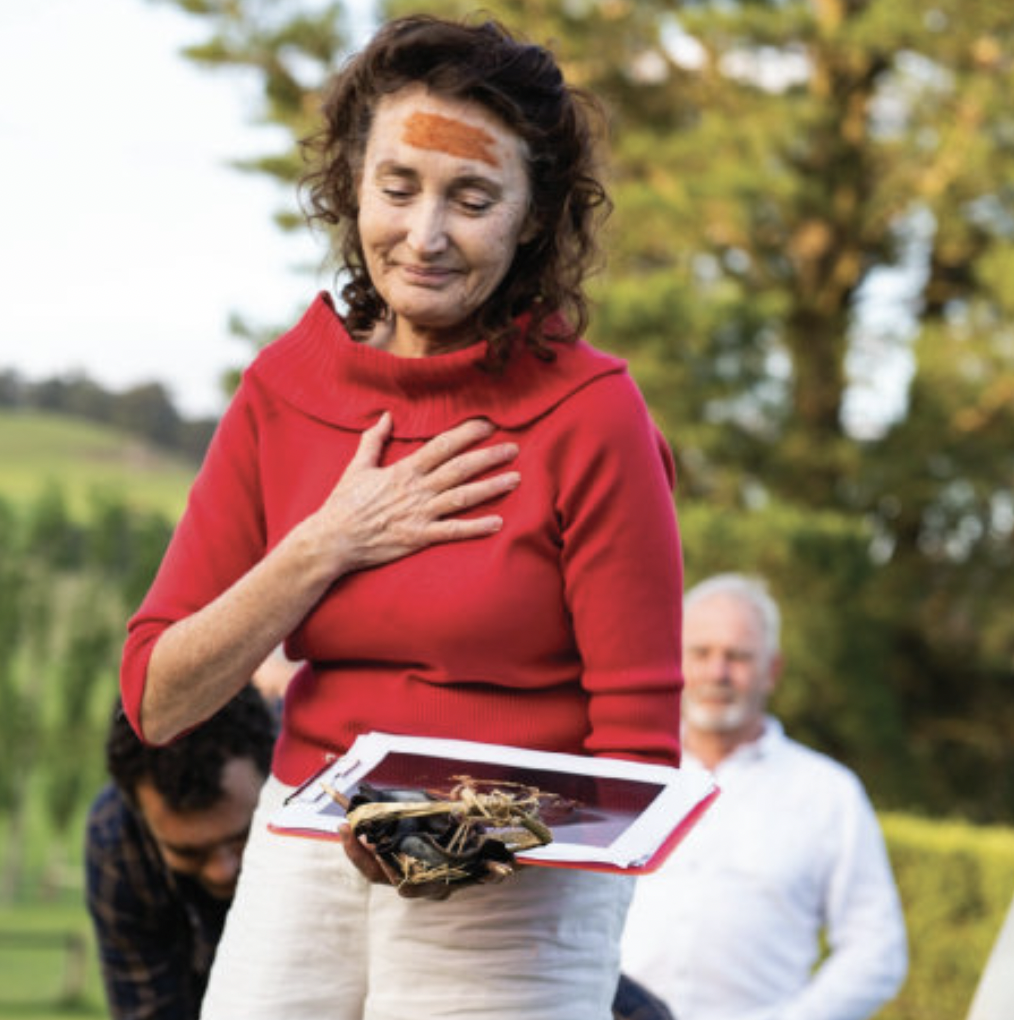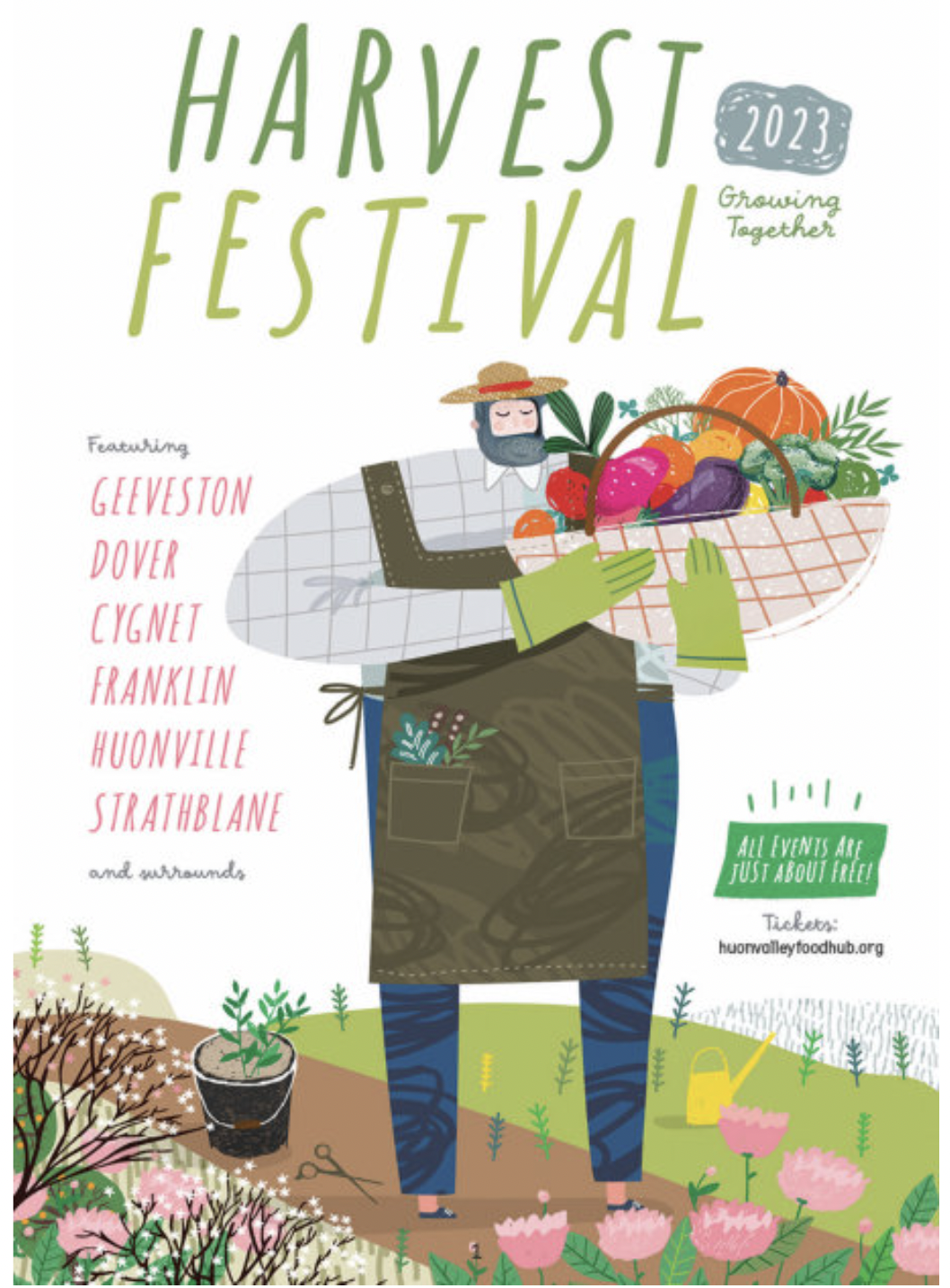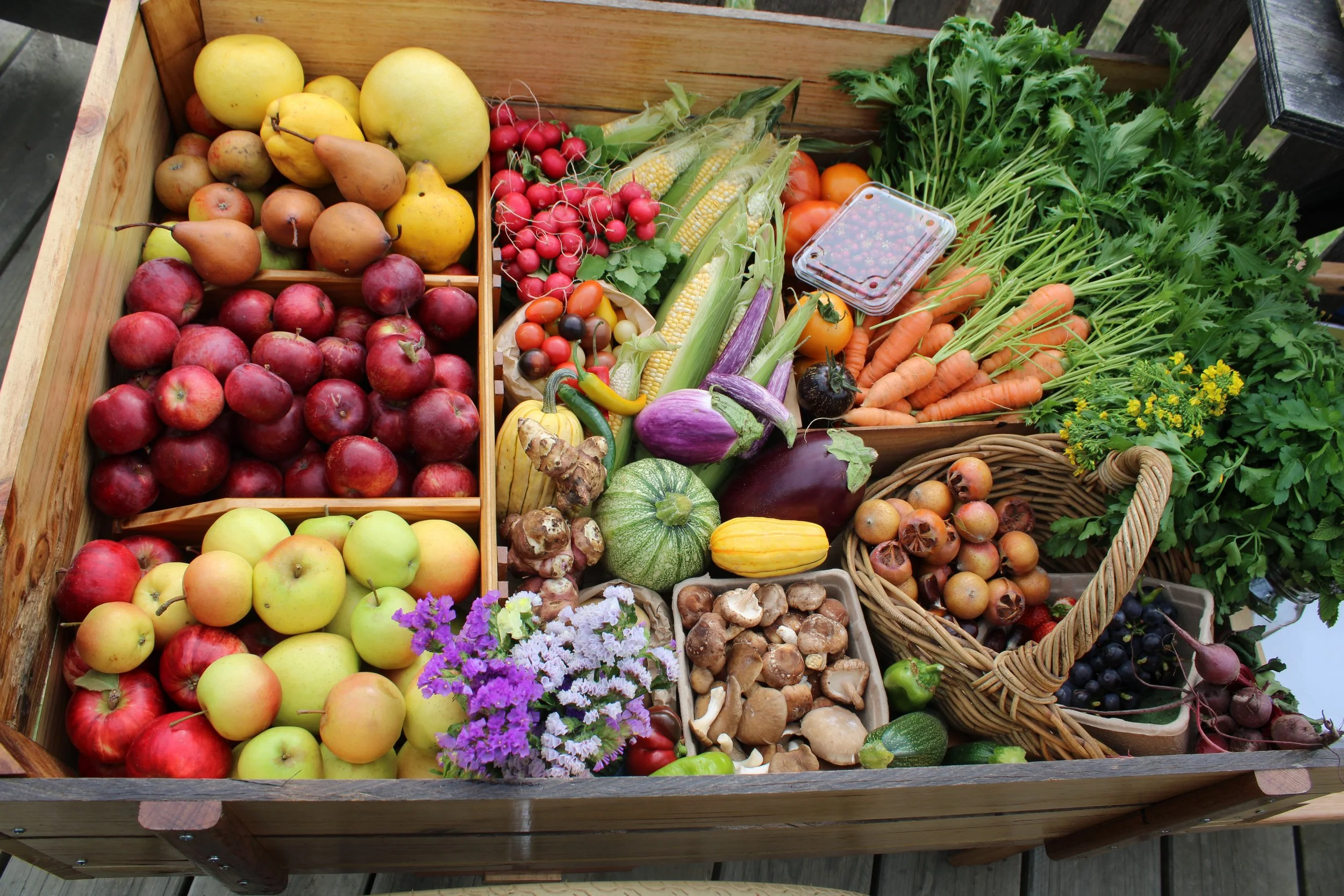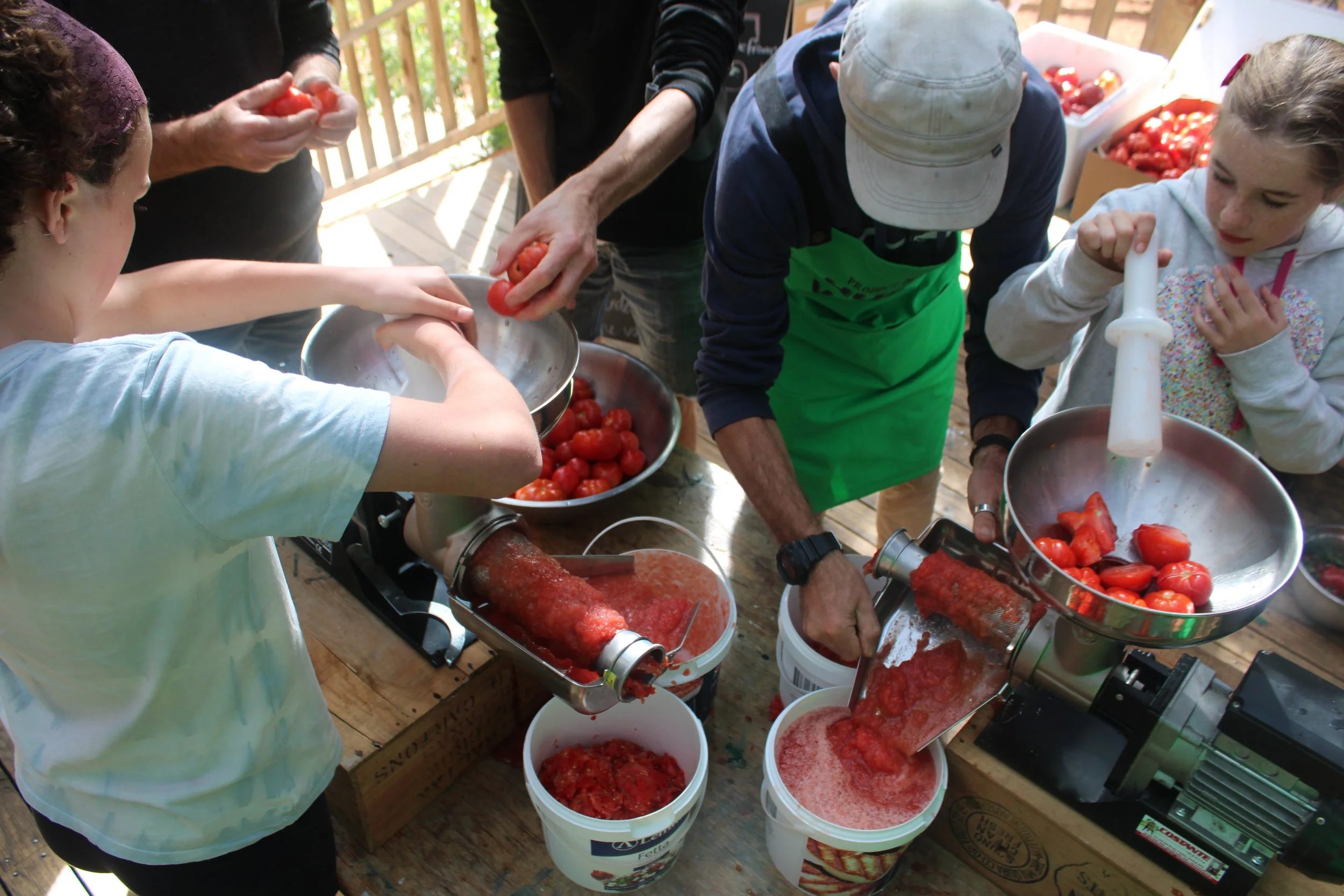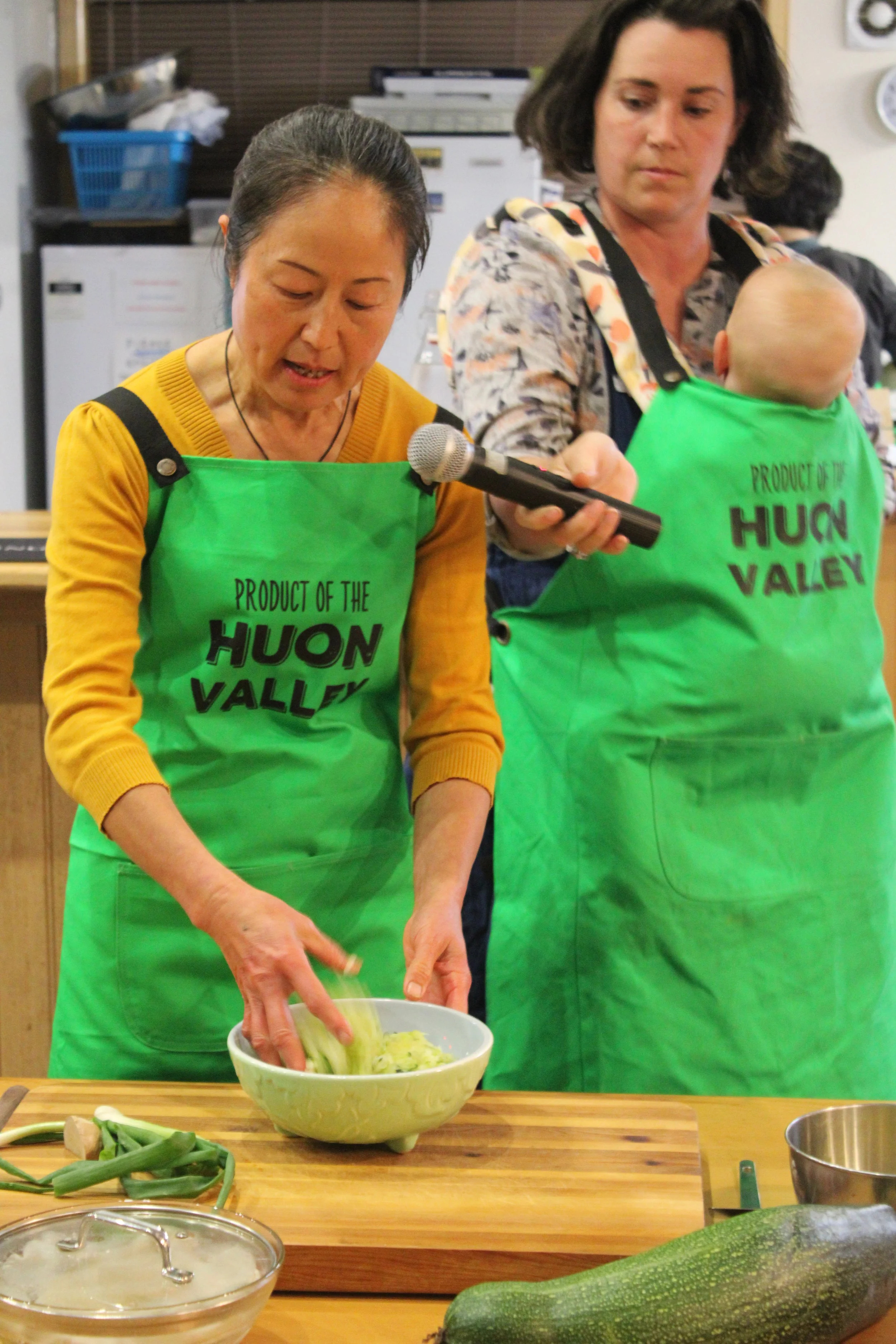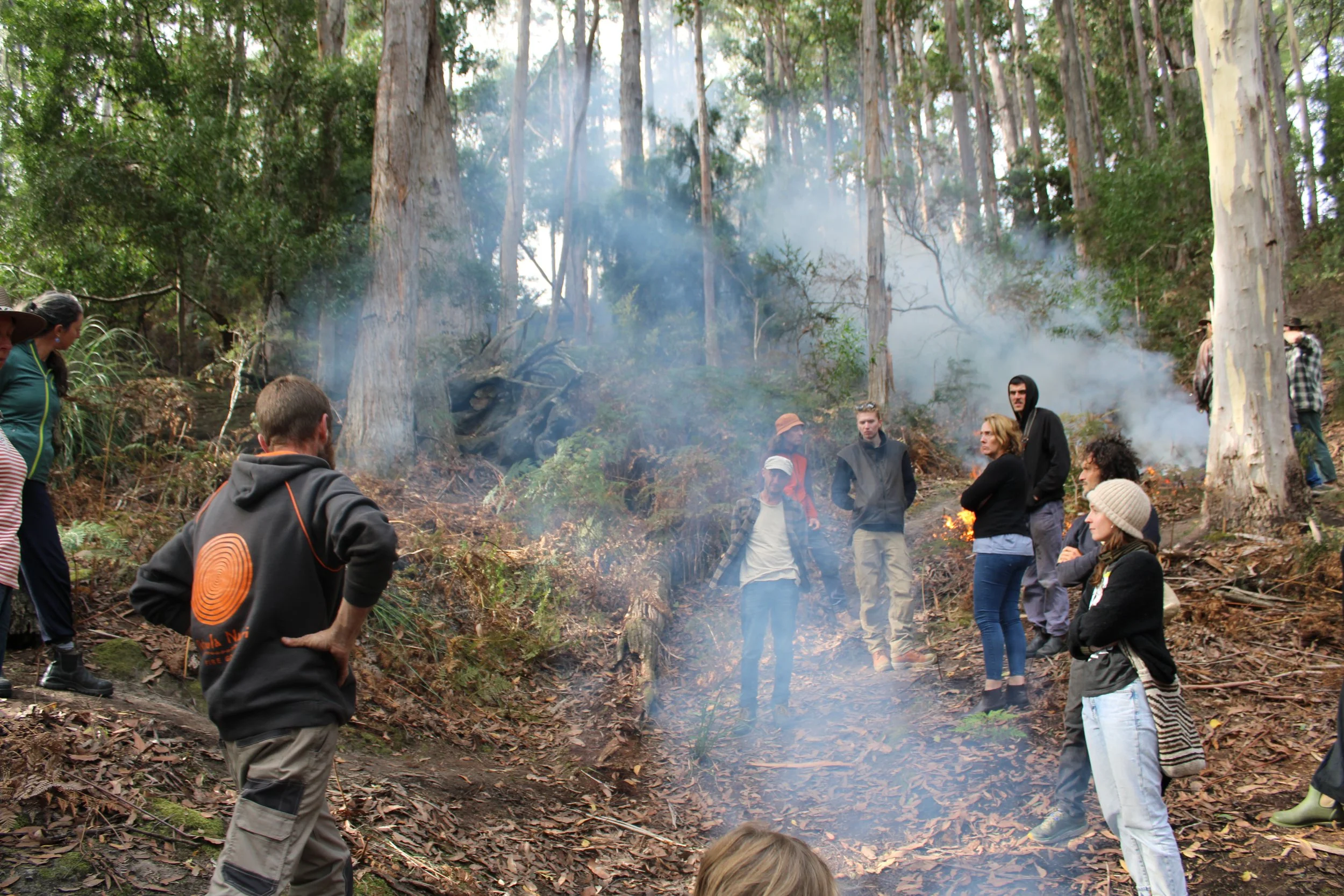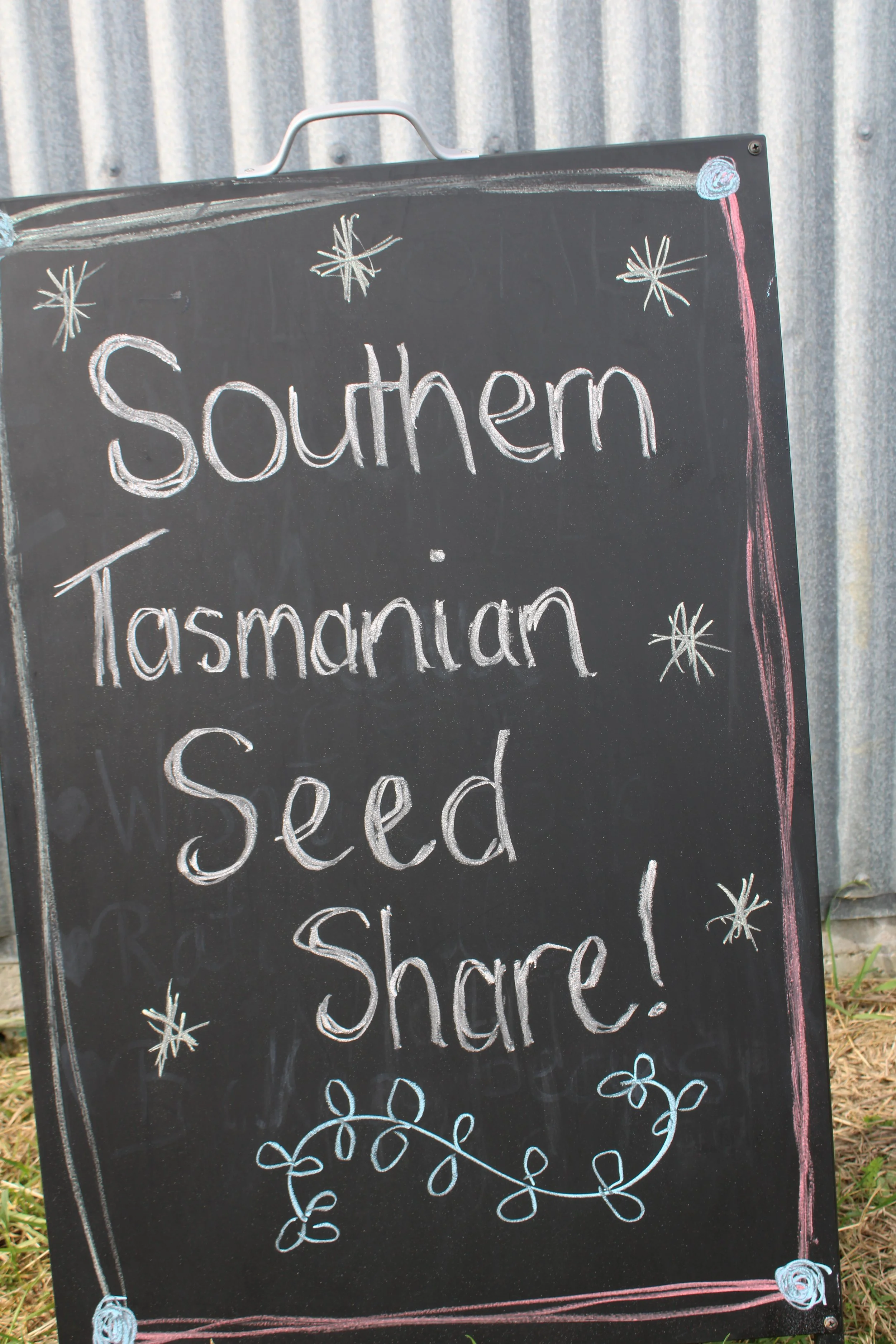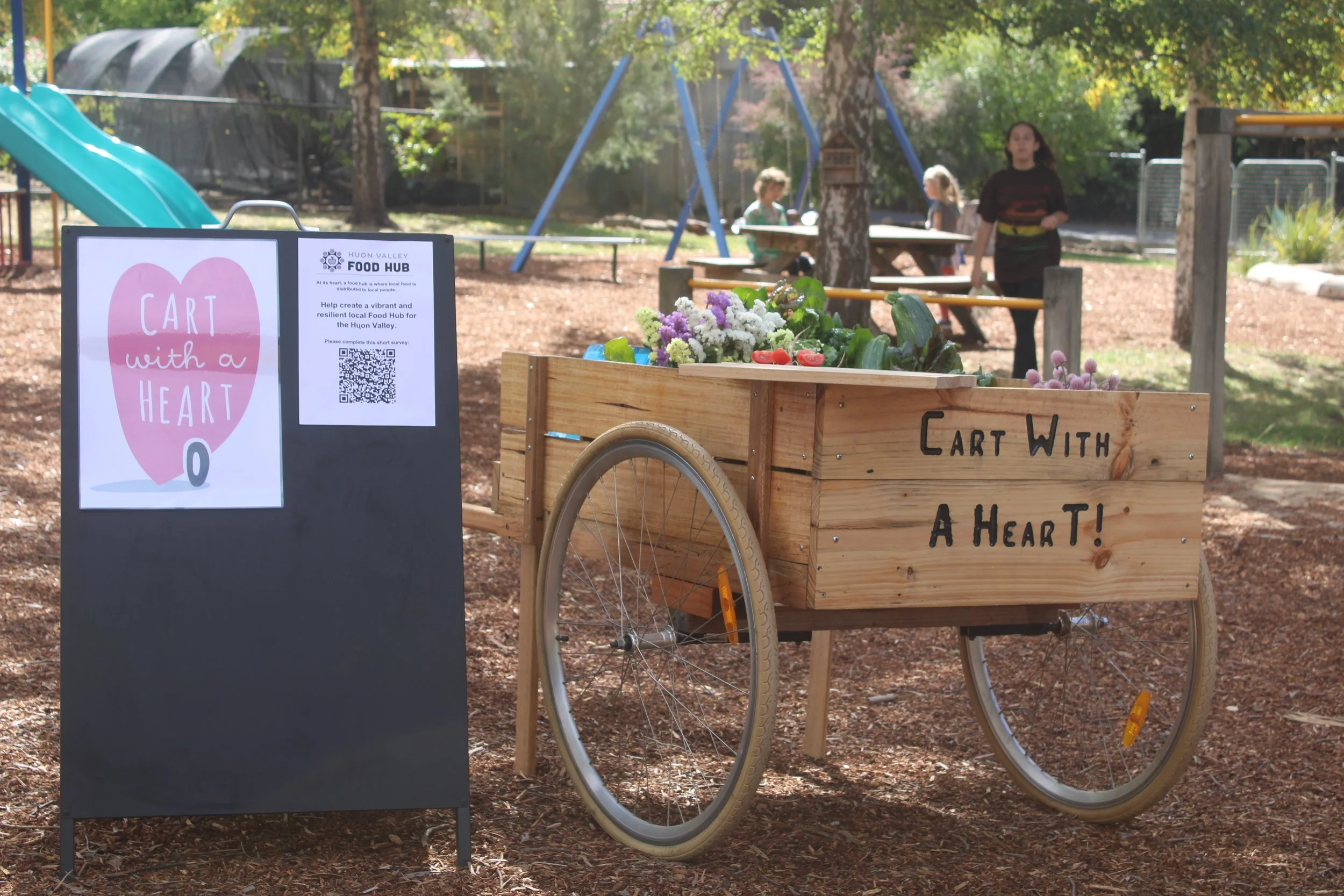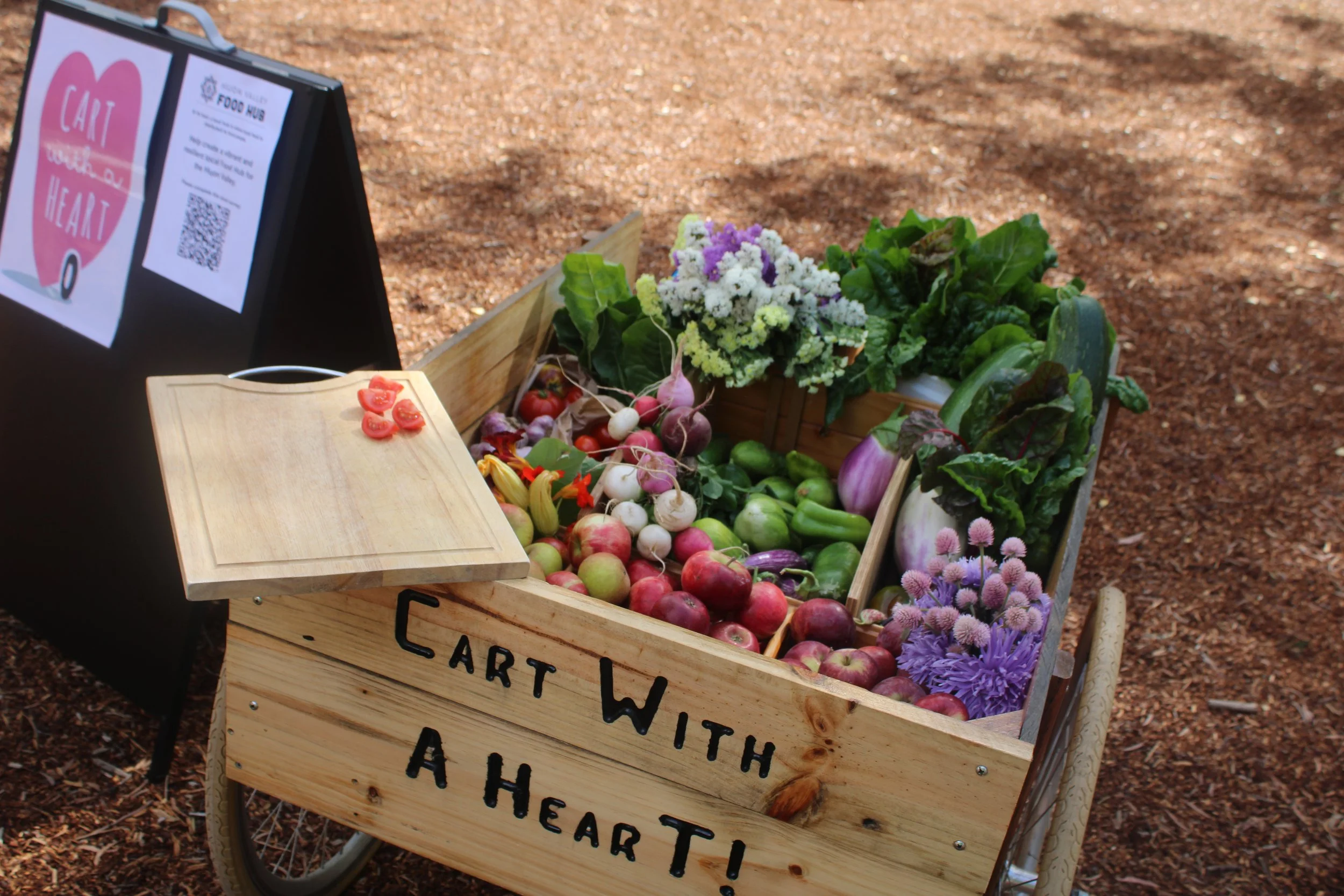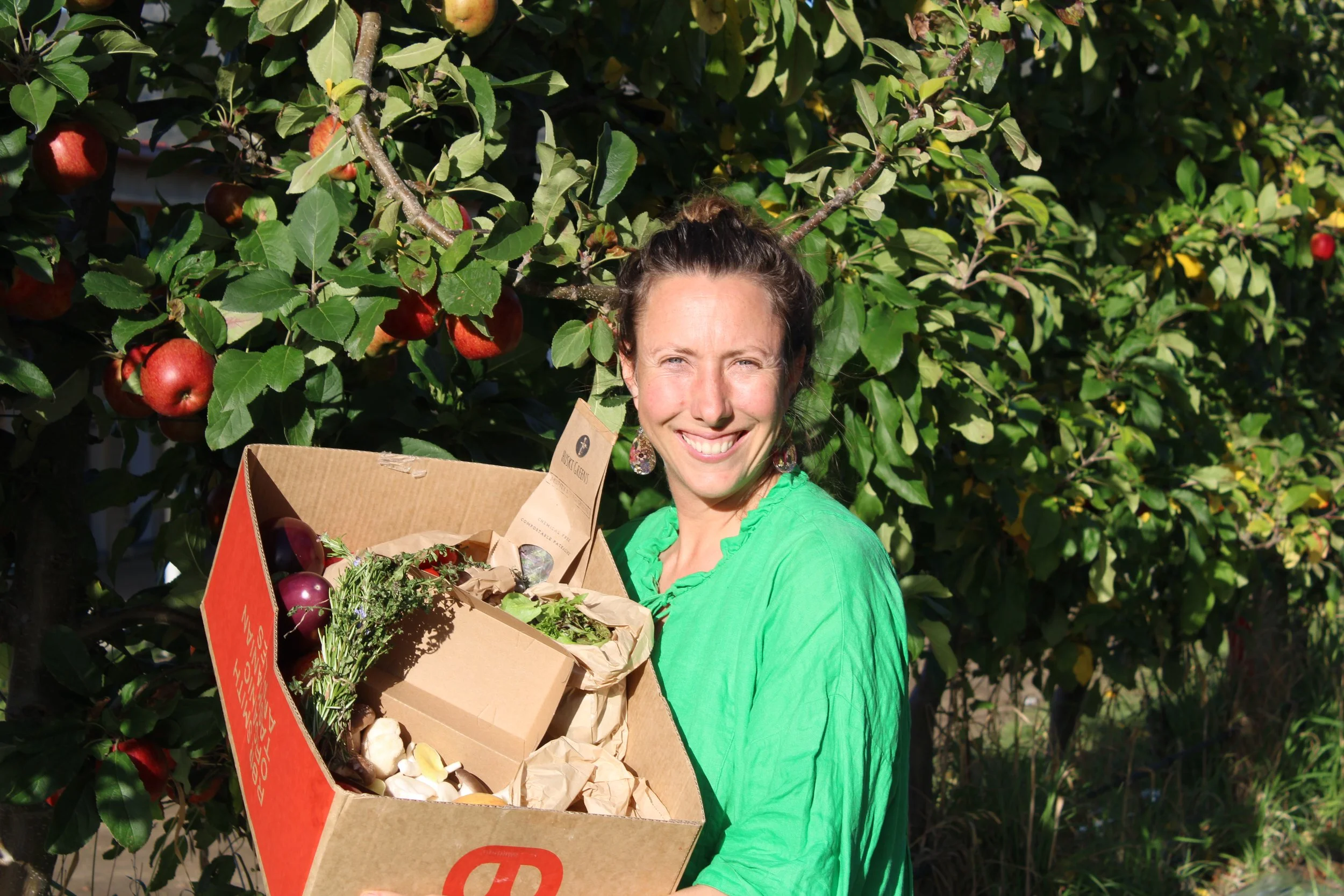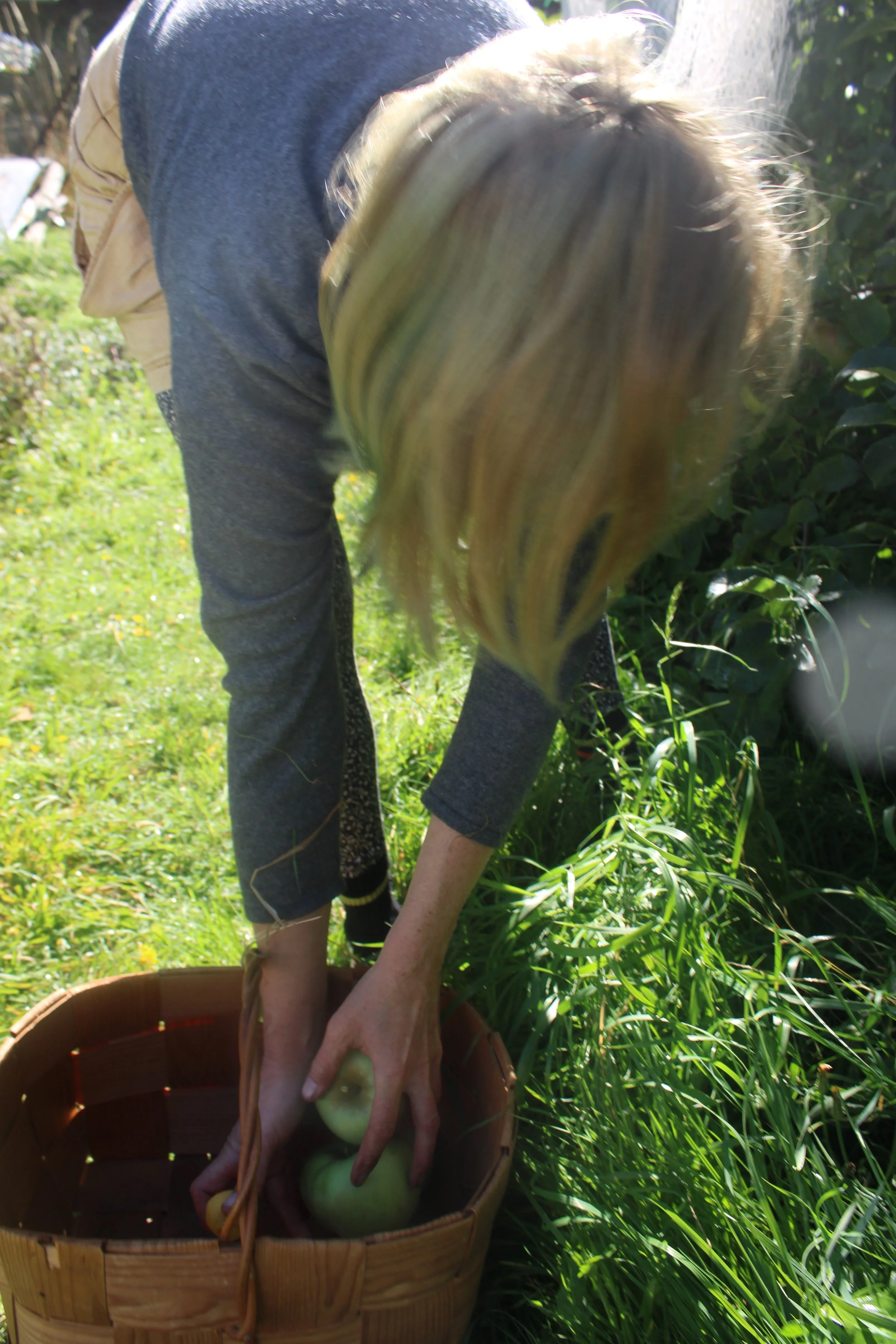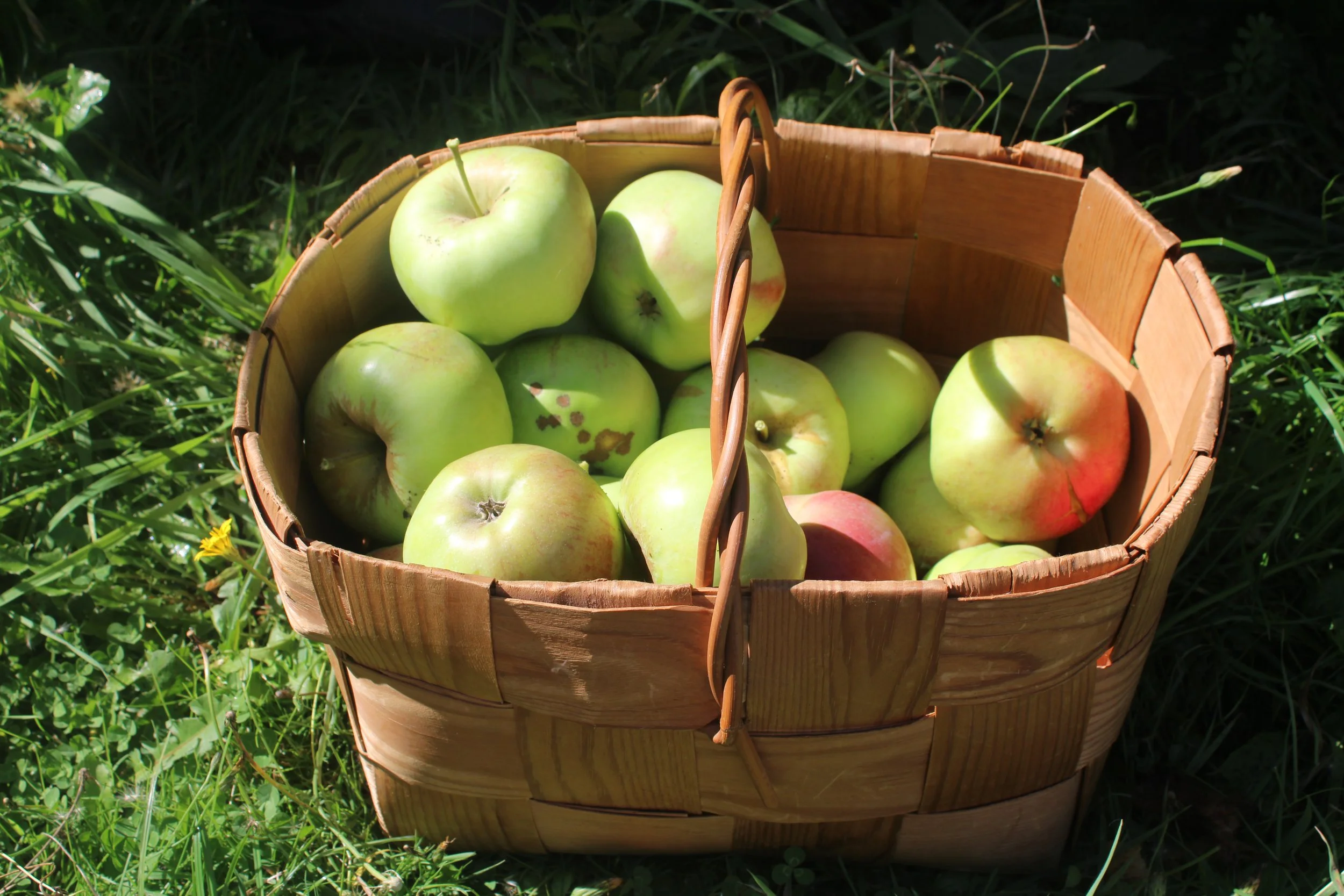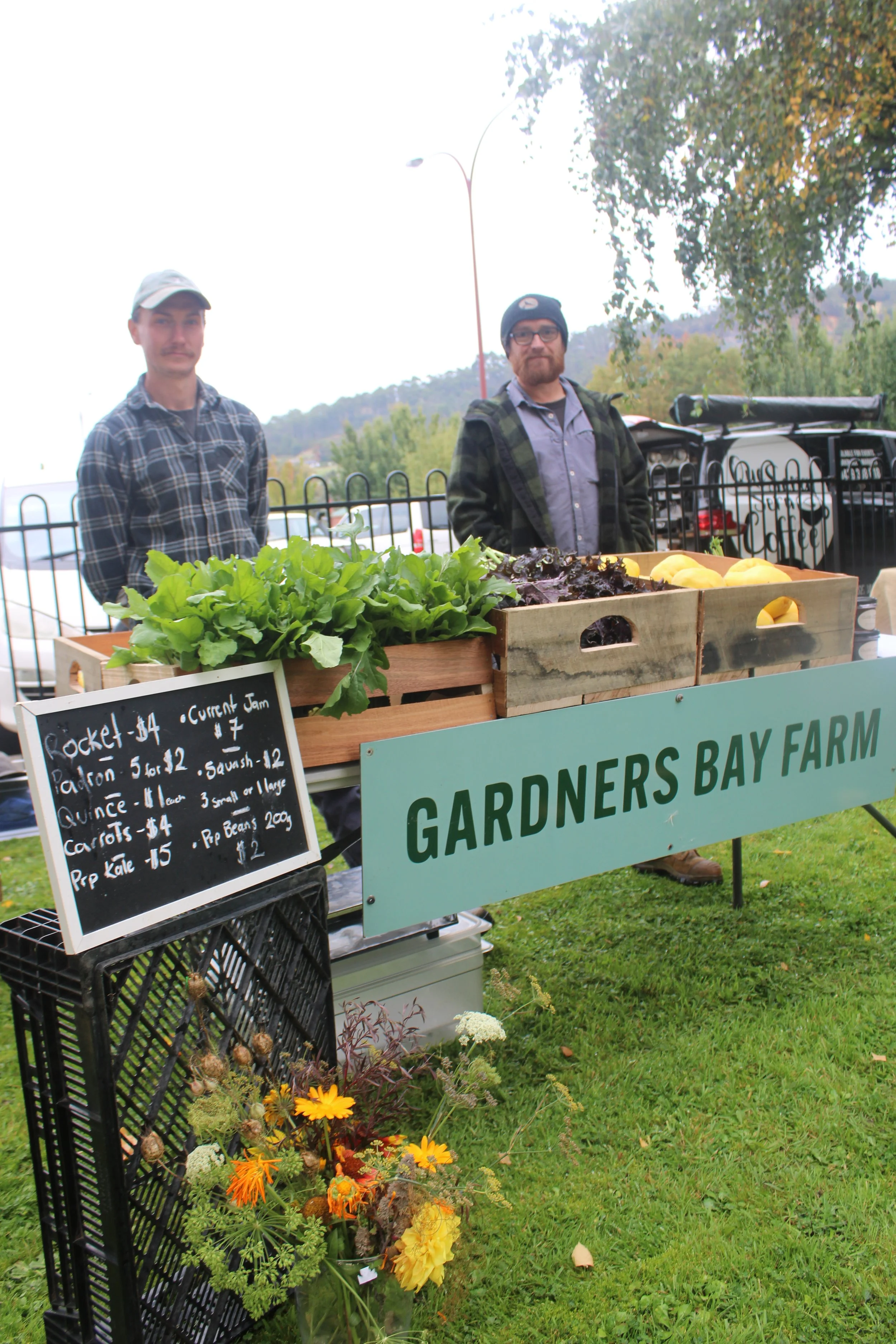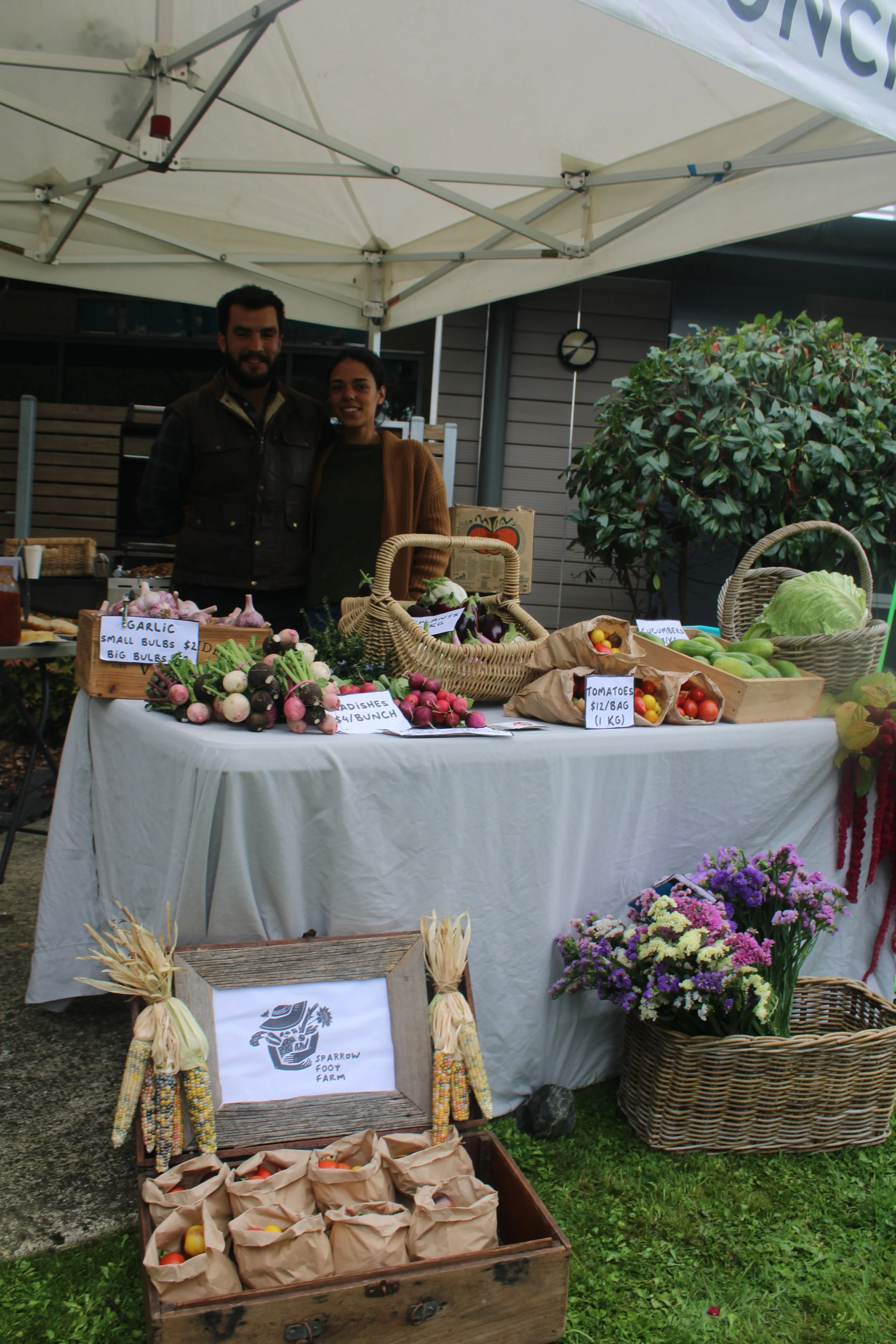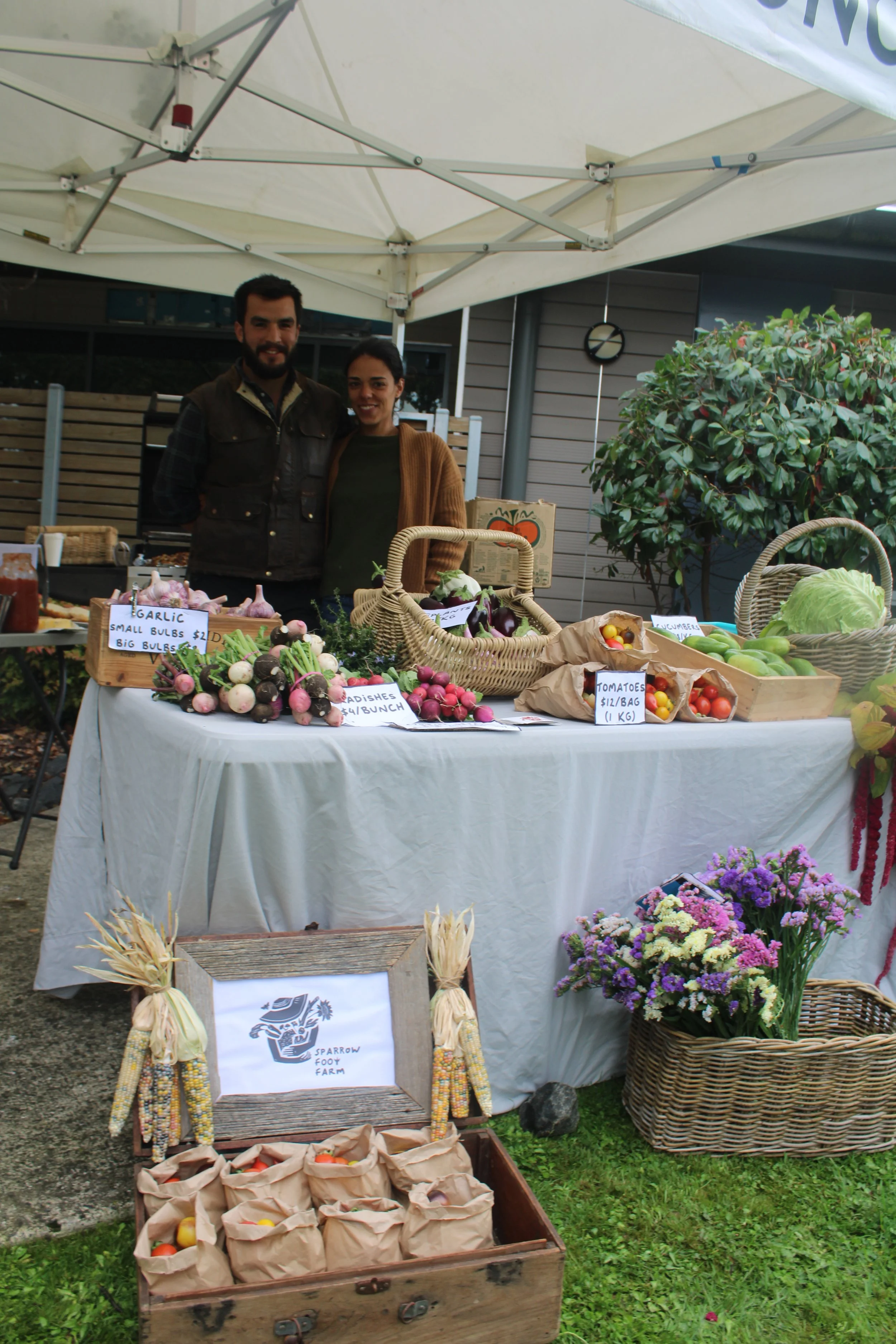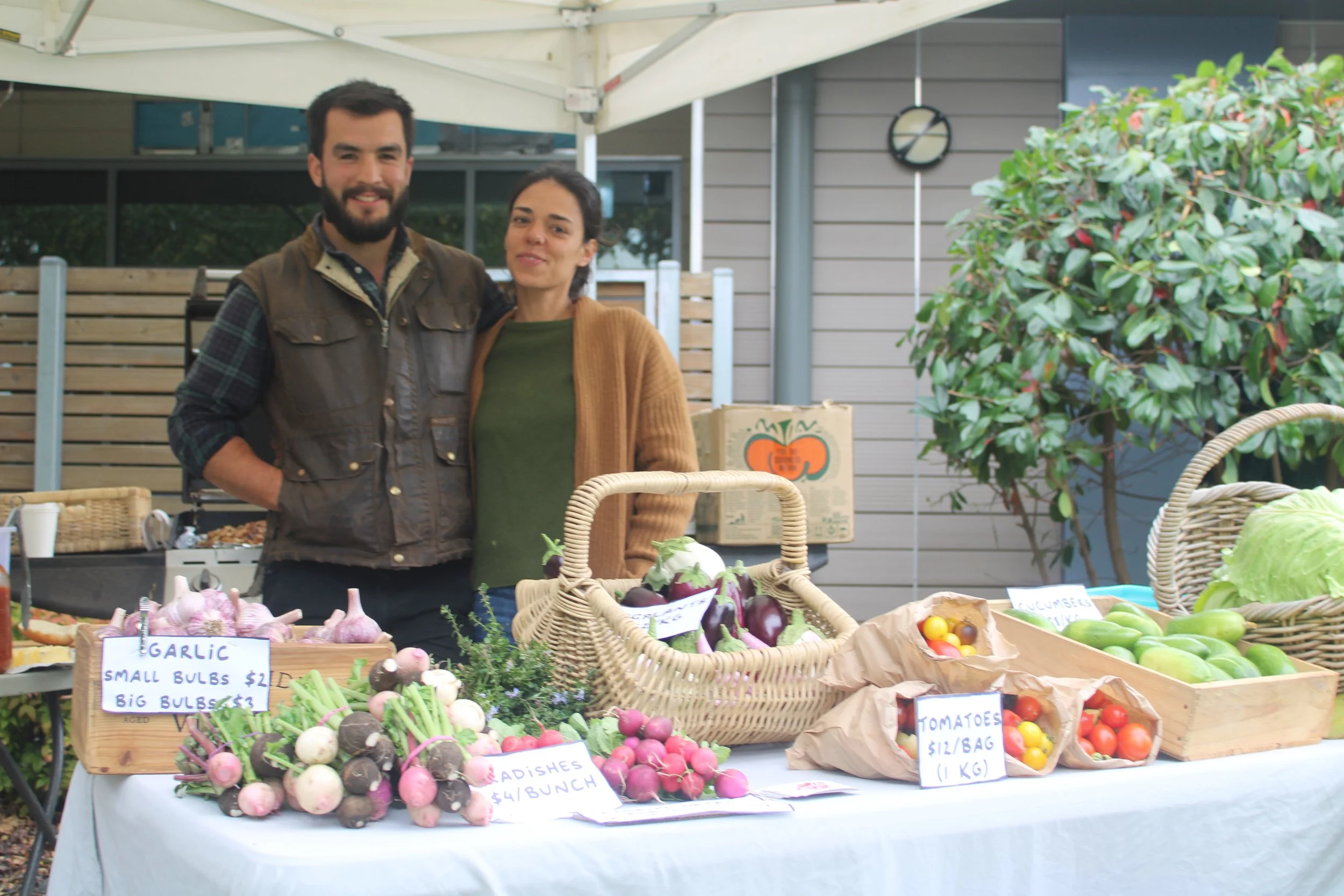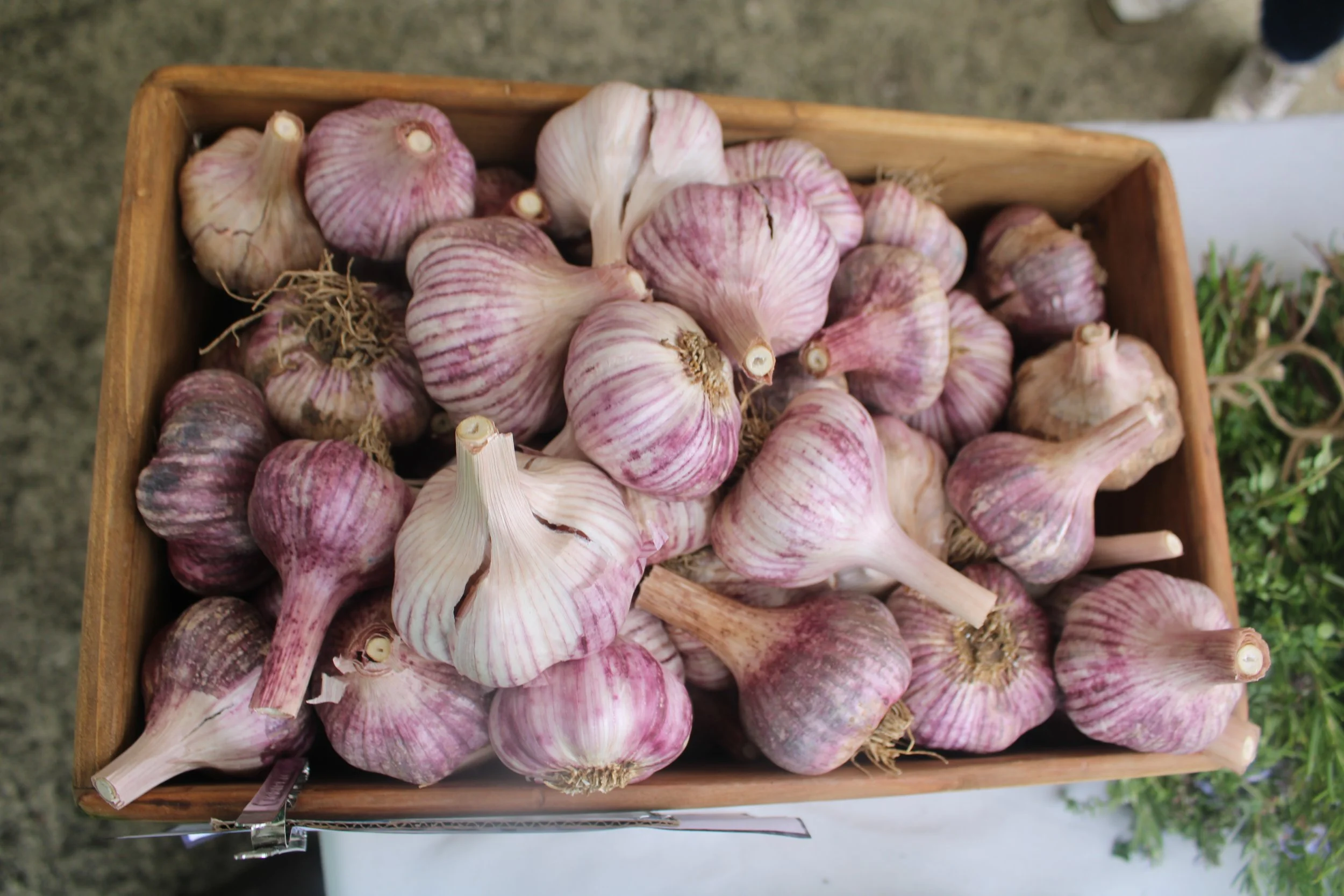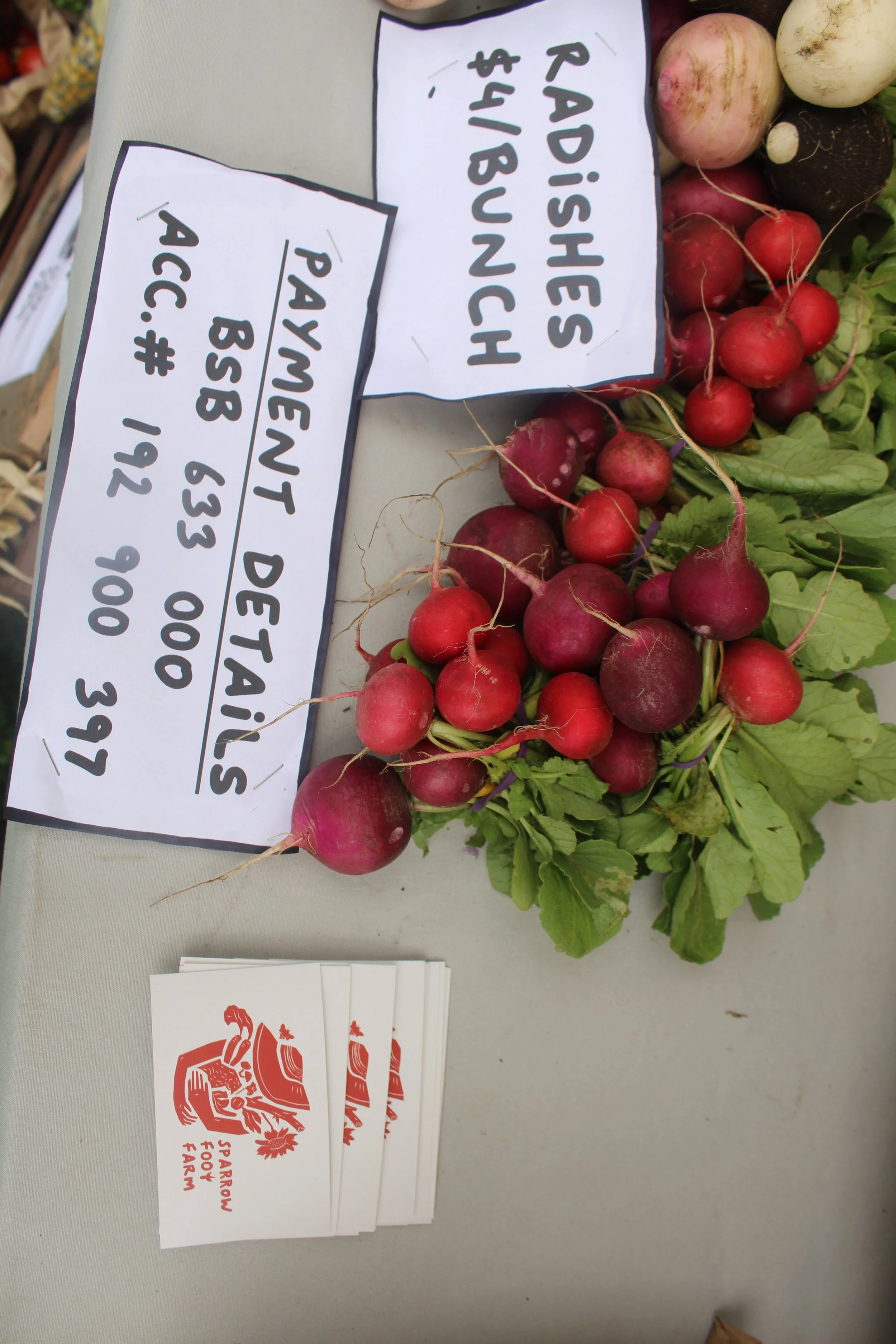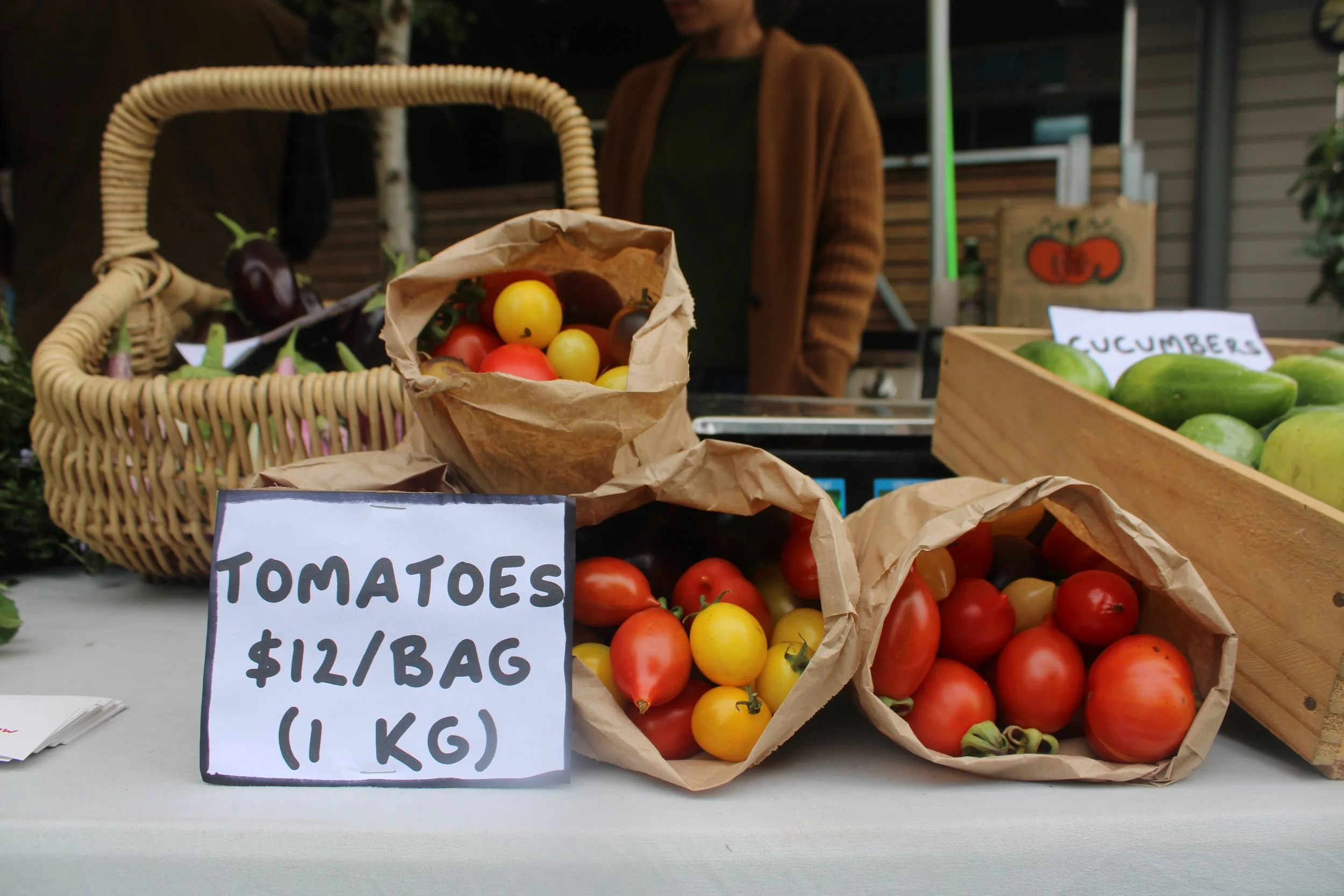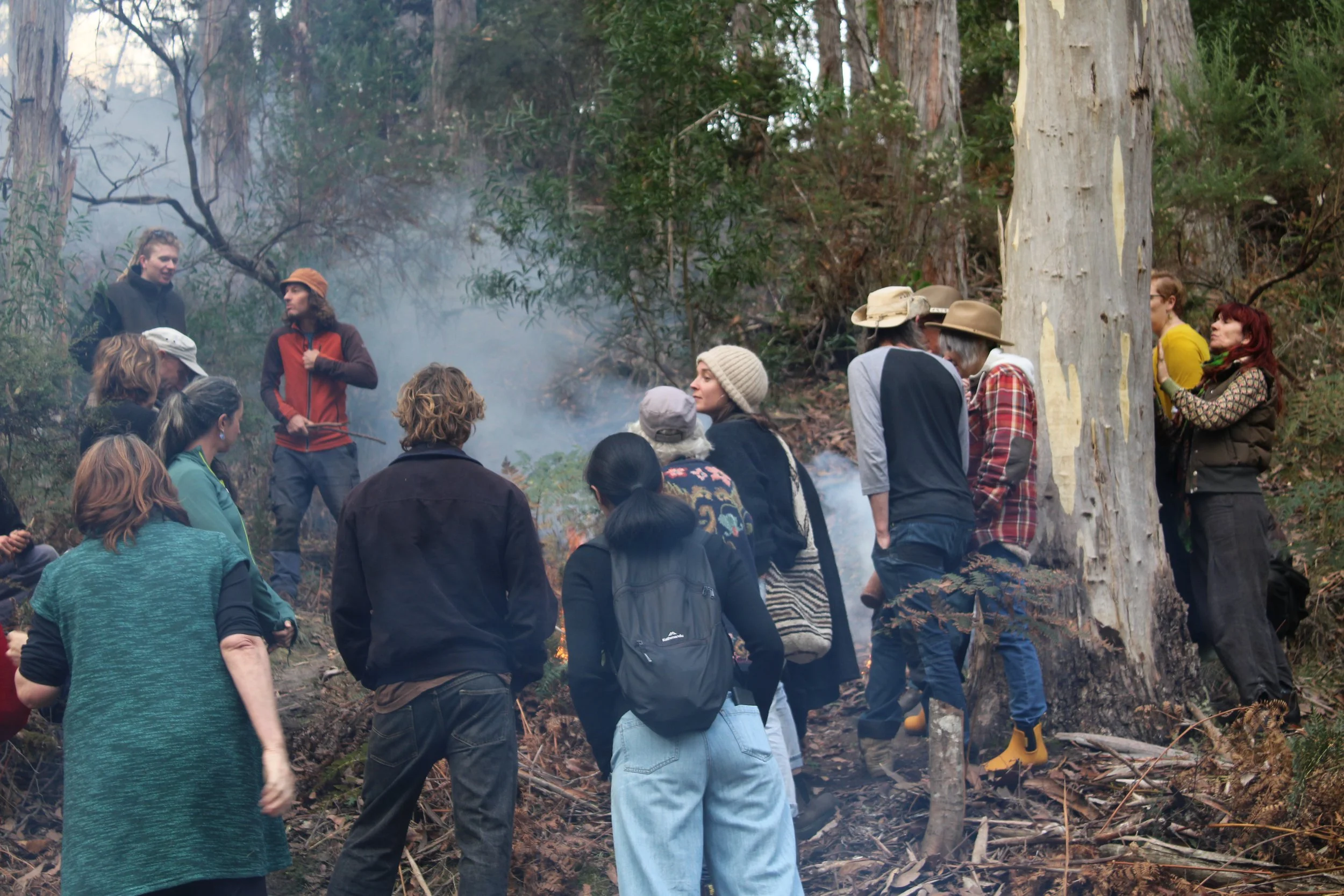Huon Valley Food Hub Project - Tasmania, Australia (2021 – 2023)
Policy and Design Lead
A community-centred, design-led food hub incubated within Huon Valley Council’s Economic Development Department. The project demonstrates how strategic redirection of institutional resources can create tangible community, economic, and ecological outcomes rather than funding abstract reports.
Key Objectives
Co-design a regenerative food hub model with citizens, producers, and stakeholders.
Develop practical prototypes to test local food systems interventions.
Strengthen skills, social cohesion, and local economic circulation.
Tactical Prototypes
Food Box Programme: 80+ participants accessed fortnightly boxes of fresh, local, organic produce. Surplus went to Huonville Primary School and Salvation Army clients. Central collection and volunteer delivery enabled broad regional reach.
Citizen Science & Co-Design Tools: MyMaps platform and workshops engaged citizens directly in designing actionable projects.
Festivals & Community Activation: Farmgate Blitz and Growing Together Harvest Festival built skills, community pride, and joy through hands-on workshops, cooking, and shared meals.
Impact & Outcomes
Redirected $40,000 AUD from conventional consultancy to direct community investment: local hires, produce procurement, event facilitation.
Enhanced local food access, equity, and resilience, connecting citizens directly to producers.
Strengthened local capacity and skills, building a foundation for ongoing autonomous initiatives.
Created a replicable model for community-centred food hubs, demonstrating the value of tangible, place-based praxis over abstract documents.
Amplified social capital and civic pride, showing how small, low-budget local government projects can deliver systemic change.
Reference / Further Reading:
Samuels-Ballantyne, E. (2022). Citizen Way: Co-created citizen science meets convivial food design. [Academia.edu link]
Policy Scheme: Regional Food Renaissance (2025 - onwards)
Objective:
To transform Australia's major regional food centres into vibrant, locally-rooted food ecosystems that celebrate place, culture, and community while supporting regenerative agriculture and local economies.
Target Regions:
Victoria: Shepparton / Goulburn Valley, Sunraysia / Mildura, Bendigo, Geelong, Western District, Ballarat
Northern Territory: Alice Springs, Katherine, Darwin, Arnhem Land (supporting Aboriginal community-led food and land management projects)
New South Wales: Orange, Griffith, Albury-Wodonga, Dubbo, Tamworth, Armidale, Coffs Harbour
Queensland: Lockyer Valley, Bundaberg, Cairns, Northern Rivers
Tasmania: Tamar Valley, Huon Valley
South Australia: Murray Bridge, Barossa Valley, Adelaide Hills
Western Australia: Margaret River, Peel Region, Swan Valley
Key Principles:
Place-Led Economic Activation:
Redirect investment from abstracted export-focused strategies toward tangible, place-based practices that benefit local communities.Community Co-Design and Stewardship:
Empower citizens, schools, producers, and local councils to co-create programs and hubs, fostering a sense of ownership and pride.Regenerative Practice Embedded:
Integrate sustainable farming practices that restore soils, biodiversity, and water systems, building climate resilience and long-term productivity.Cultural and Gastronomic Identity:
Develop unique food narratives for each region to attract visitors and strengthen local pride, positioning towns as destination hubs for culinary tourism.Education and Capacity Building:
Collaborate with local schools, universities, and community programs to build skills, food literacy, and resilient social networks.
Implementation Pathway:
Local Food Hubs:
Establish hubs that integrate processing, retail, and educational spaces, serving as community centres for food-related activities.Community Food Programs:
Launch initiatives inspired by successful models like Peach n Pear and Huon Valley Food Hub, focusing on local food access and education.School and University Partnerships:
Develop programs that connect students with local food systems, promoting hands-on learning and community involvement.Policy and Investment Realignment:
Allocate funds toward practical local infrastructure and programs, ensuring that investments deliver immediate community benefits.
Anticipated Outcomes:
Economic Resilience:
Create jobs in food production, processing, gastronomy, and tourism, retaining a greater share of food system value locally.Social Cohesion:
Strengthen community networks through food-centred spaces that connect diverse groups and foster collaboration.Environmental Regeneration:
Support climate-adaptive and sustainable farming practices, contributing to ecological health and resilience.Cultural Revitalisation:
Establish regions as nationally and internationally recognised food destinations, enhancing local identity and pride.
